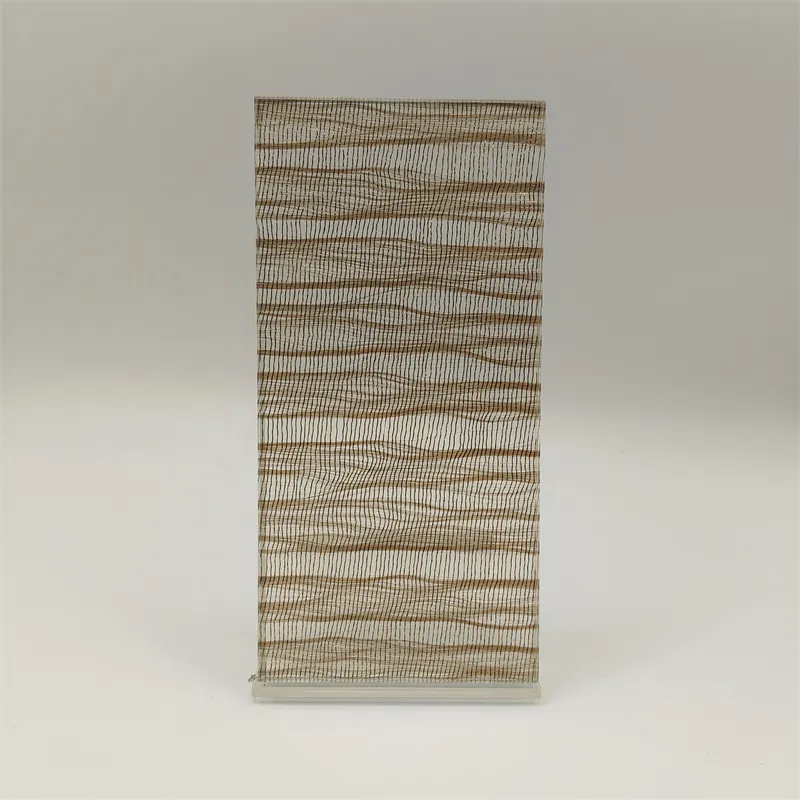Nov . 05, 2024 20:39 Back to list
tinted float glass
Understanding Tinted Float Glass A Comprehensive Overview
Tinted float glass is a popular choice in both residential and commercial settings, valued for its aesthetic appeal and functional properties. This innovative material combines the classic qualities of float glass with the added benefits of color and optical performance. The result is a versatile product that enhances architectural design while providing privacy, light control, and energy efficiency.
What is Tinted Float Glass?
Float glass is a type of glass produced by floating molten glass on top of molten tin, resulting in a smooth, flat surface. Tinted float glass is created by incorporating metal oxides or colored additives during the manufacturing process. This tinting can range from subtle shades to deep hues, allowing for various levels of light transmission and visual effects.
The tinting of float glass not only affects its color but also enhances its properties. The glass' ability to absorb and reflect certain wavelengths of light can significantly reduce glare and heat gain, making it an ideal choice for different environments.
Benefits of Tinted Float Glass
1. Solar Control One of the primary benefits of tinted float glass is its ability to control solar radiation. The tinted surface absorbs a portion of the sun’s heat, helping to maintain a comfortable indoor temperature. This is particularly beneficial in regions with high sunlight exposure, as it can reduce reliance on air conditioning, leading to energy savings.
2. Glare Reduction Tinted float glass minimizes glare from direct sunlight, which can be disruptive in workspaces, homes, and commercial buildings. By choosing the right tint level, occupants can enjoy natural light without being overwhelmed by brightness.
3. Enhanced Privacy Aesthetically pleasing while functional, tinted glass provides increased privacy without sacrificing natural light. This makes it a popular choice for offices, conference rooms, and residential bathrooms where privacy is paramount.
tinted float glass

4. UV Protection The tinting process can also offer protection against harmful ultraviolet (UV) rays. This is essential for preserving furnishings and flooring, which can fade when exposed to direct sunlight for extended periods. Tinted float glass can help extend the lifespan of interior materials by blocking a significant percentage of UV rays.
5. Aesthetic Flexibility Tinted float glass comes in numerous colors and shades, providing architects and designers with creative flexibility. Whether seeking modern elegance or a traditional design, tinted glass can complement various architectural styles while enhancing the overall appearance of the building.
Applications of Tinted Float Glass
The applications of tinted float glass are vast. In residential settings, it is frequently used for windows, doors, and glass enclosures. In commercial buildings, tinted glass is often utilized for storefronts, office partitions, and curtain walls. Its ability to reduce glare and heat gain makes it a perfect choice for high-rise buildings, where balconies and glass facades can become uncomfortable due to excessive sunlight.
Furthermore, tinted float glass is commonly employed in the automotive industry for windshields and windows. Automotive glass manufacturers utilize tinted glass not only for style but also to improve passenger comfort and reduce the risk of sunburn during long drives.
Conclusion
Tinted float glass presents a unique combination of beauty and functionality that caters to the increasing demands of modern architecture. Its benefits range from energy efficiency and glare reduction to enhanced privacy and aesthetic versatility. As consumers and architects alike continue to prioritize sustainability, tinted float glass stands out as a practical solution that meets both environmental and design guidelines.
In summary, tinted float glass is more than just a stylish element; it is a multifaceted product that enhances living and working spaces while contributing to energy conservation efforts. Whether in a home, office, or vehicle, the benefits of tinted float glass can create a more comfortable and visually appealing environment.
-
Safety and Style with Premium Laminated Glass Solutions
NewsJun.24,2025
-
Reinvents Security with Premium Wired Glass
NewsJun.24,2025
-
Premium Float Glass Line for Modern Architecture
NewsJun.24,2025
-
Low Emissivity Glass for Energy-Efficient Architecture
NewsJun.24,2025
-
High-Performance Insulated Glass Solutions for Modern Architecture
NewsJun.24,2025
-
Elevates Interior Style with Premium Silver Mirror
NewsJun.24,2025
Related PRODUCTS














